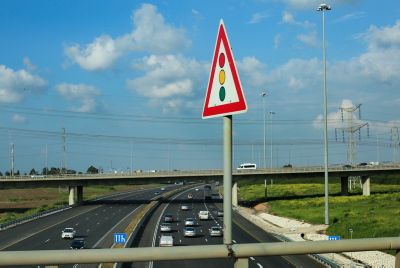Israelis Now 30,000 Road Tests Behind Schedule

Now on strike for five weeks, examiners who give road tests to Israelis seeking licenses are nearly 30,000 tests behind schedule, government officials said Sunday. As a result, it would take perhaps as long as six months to catch up and get back on schedule, even if the strike were ended tomorrow – which certainly does not appear to be likely.
On Sunday, driving school teachers decided to show their support for the testers. Hundreds of teachers are marching from Haifa to Transport Ministry headquarters in Yerushalayim, where they plan to arrive on Wednesday. According to the teachers, they, too are victims of the strike, because thousands of prospective drivers have postponed lessons because they fear they will forget their driving skills before they have an opportunity to take a test and get a license – preferring to wait until the strike ends before continuing lessons.
The protest by the teachers brings to light the issue of the economic implications of the strike, which have been virtually ignored in the media. At stake is not only the ability of 18-year-olds to take their first drive in the family car, but also the training of new truck, bus and other professional drivers, who need to take road tests in order to qualify for a license.
The examiners continue to protest the Transport Ministry’s plan to authorize private companies to test drivers for their readiness for the road. Several weeks ago, the Ministry advertised a tender to license private groups to test prospective drivers on their on-road skills.
The tests would be given by driving school teachers, with whom prospective drivers already work. To get a license, students must take a minimum number of lessons (between 3 and 19, depending on age and background), and the Ministry wants to grant the teachers who give those lessons the ability to test students as well. The current Ministry-employed examiners see this as a back-door attempt to replace them with private-sector service providers.
To Read The Full Story
Are you already a subscriber?
Click "Sign In" to log in!

Become a Web Subscriber
Click “Subscribe” below to begin the process of becoming a new subscriber.

Become a Print + Web Subscriber
Click “Subscribe” below to begin the process of becoming a new subscriber.

Renew Print + Web Subscription
Click “Renew Subscription” below to begin the process of renewing your subscription.











